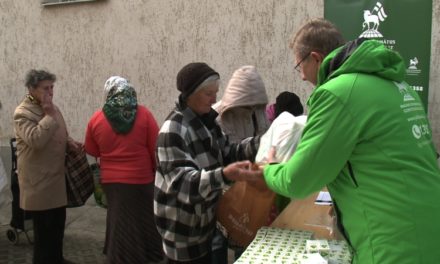Although illegal immigration from 2015, then the pandemic from 2020 and the war in Ukraine this year have left their mark on everyday life, all of this has strengthened Hungarianness in the diaspora and in the Carpathian Basin, Katalin Szili, the prime minister's representative responsible for cross-border autonomy, told the Magyar Nemzet. , adding that he considers the care of the Hungarian state to be unparalleled, wherever Hungarians live in the world.
The politician, who has been working since 2015 as the prime minister's representative in charge of cross-border autonomy affairs, said in an interview published in the Wednesday edition of the newspaper, among other things, that wherever he went in the world in the last seven years, they looked at Hungary as providing security for the people who live here, protecting the its citizens.
He also talked about becoming one of the curators of the university in Pécs. "In this way, we can better connect the Hungarianness of the diaspora and the Carpathian Basin," he said, and noted that he was proud of the fact that while last year Pécs was the forty-second out of 956 green universities in the world, this year it is twenty-first out of the world's 1,050 universities. He also said that they want to create a network center for Hungarians in the world at the university, where they will provide an educational, cultural and scientific background for Hungarians in the world. One of its branches is, for example, the World School of Hungarians project.
"We would like to support the talents of the Carpathian basin and the diaspora with university sports scholarships, relying on the basketball academy of László Rátgéber. Several of our faculties also teach across the border, in Székelyudvarhely, for example, nurse and healthcare manager training, and in Sepsiszentgyörgy joint art education with Sapientia Transylvanian Hungarian University takes place, which is very successful. We would also like to involve the talented young people living in Csángóföld, and provide them with opportunities to break out and scholarships," he said.
Katalin Szili mentioned the volume she edited entitled Ten from Thirty, which presents the autonomy aspirations of the period from 2010 to 2020.
The volume covers the ten out of thirty years that can be linked to the second, third and fourth Orbán governments, from which the biggest changes in national politics can be dated. He added that they have also started a series with the National Policy Research Institute, aiming to increase legal awareness by publishing a so-called legal awareness manual, of which the Upland, Subcarpathian and Transylvanian ones have already been published. "We have collected the legislation on minorities in the respective countries, which they can apply in everyday life," he said. The Muravidék handbook is already ready, and the material for Croatia and Burgenland is also being prepared, he added.
He also reported that he and Ferenc Kalmár, the special commissioner responsible for the neighborhood policy of the Ministry of Foreign Affairs and Trade, developed five points, offering new principles in national politics, among other things, that the issue of national minorities is a European and not an internal matter;
in addition to individual rights, collective rights must also be recognized; belonging to a nation is not necessarily the same as citizenship; it must be included everywhere in the fundamental laws that the minority living there is a state-creating factor; finally, the fifth point is that identity protection cannot exist without taking into account the case of national minorities.
Source: MTI
Photo: MTI/János Vajda












